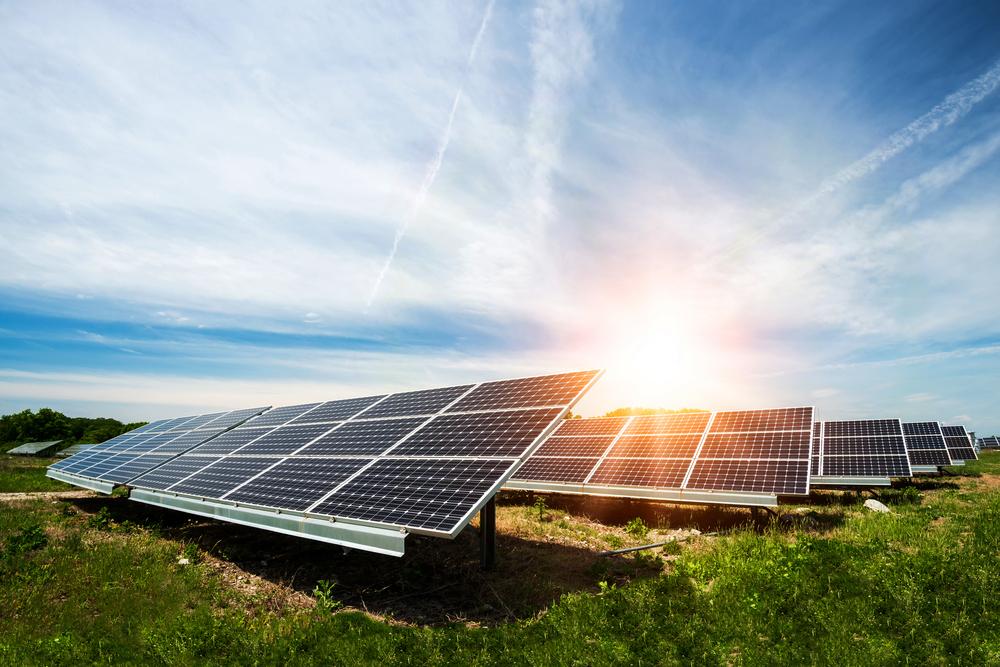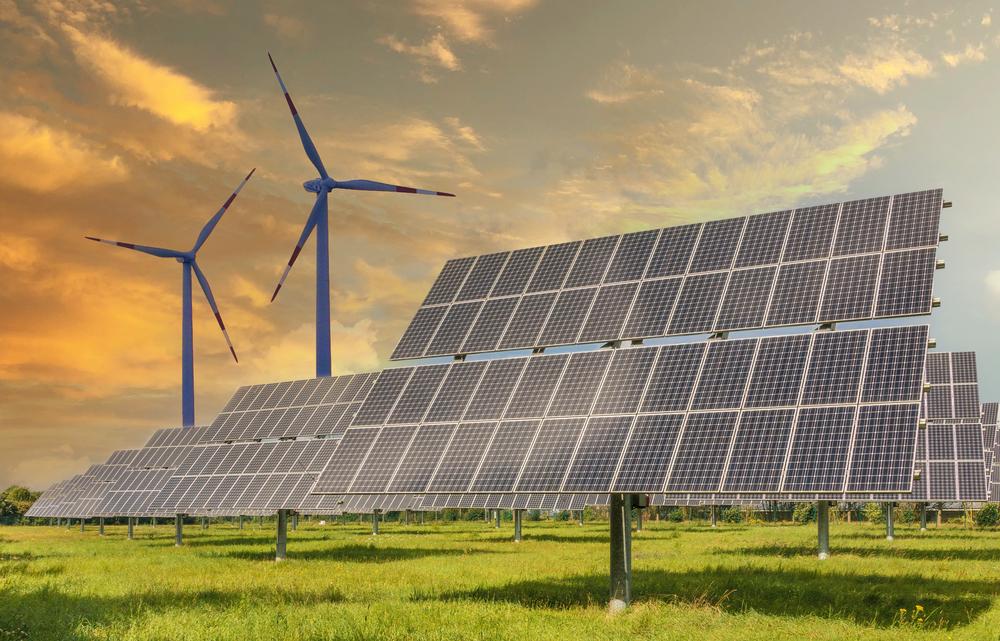Making a choice to switch your business’s energy source from traditional fossil fuels to solar power has multiple benefits. The biggest and most obvious one is reducing your carbon footprint, which helps protect the environment, but there are endless other advantages that come with using fossil fuel generation and going solar.
Not only can you save money on monthly utility bills and minimize wasteful expenditures by using solar renewable energy credits, but it also opens up new possibilities for boosting visibility in the local community and beyond. In this blog post, we’ll look at why making the switch to solar power is essential for businesses looking to maximize their efficiency and reduce environmental impact.
What is Solar power?
Solar power is a form of renewable energy that harnesses the Sun’s rays to generate electricity. Solar photovoltaic (PV) panels absorb the sun’s energy and convert it into usable electricity. Solar power systems are becoming increasingly popular as people become more conscious of their environmental impact, looking for ways to reduce their carbon footprint.
Solar energy is becoming more affordable, reliable, and efficient than ever before, with countries investing billions of dollars into the solar energy sector to speed up progress. With advances in technology and increasing investment in the industry, solar power is becoming an increasingly viable alternative to traditional sources of energy like coal and natural gas.
Solar power systems are available in various sizes, from small-scale rooftop solar systems designed to provide energy for a single household to large-scale solar farms providing renewable energy to entire communities. Solar energy is especially useful in remote and rural areas where access to the power grid is limited or non-existent.
Solar panels are becoming more efficient at converting sunlight into electricity, allowing them to generate electricity even in low-light conditions, such as during cloudy days or at night.
Solar energy is also a clean and renewable energy source without fuel, meaning it produces no pollution or greenhouse gas emissions when producing electricity. Solar power systems have become increasingly popular in recent years as an alternative to traditional sources of energy.
Benefits of Solar Power for your business

Following are the Benefits of Solar Power for business owners:
1. Cost Savings:
The solar power system can reduce your electricity bills significantly. With no fuel costs, solar energy is one of the most cost-effective sources of renewable energy out there. You will also be eligible for various tax credits and incentives available for commercial solar panels in some areas.
2. Security:
Solar power provides you with a secure source of energy. Solar panels are largely immune to power outages and fluctuations, meaning you don’t have to use a commercial power grid or worry about sudden price hikes due to a fuel shortage in the market.
3. Environmental Benefits:
Solar energy is one of the cleanest sources of solar electric power available — it doesn’t produce any pollution or carbon emissions, making it an ideal solution for businesses looking to reduce their carbon footprints.
4. Increased Property Value:
Having solar panels installed on your property can increase its value significantly, making it more attractive to potential buyers or tenants.
5. Tax Benefits:
Businesses that install solar energy systems may be eligible for federal tax credits, state and other tax credits, local incentives, and accelerated depreciation.
6. Improved Corporate Image:
Going green is becoming increasingly important to customers in terms of the environment and corporate social responsibility. Investing in solar power can help your business stand out from the competition and appeal to environmentally conscious consumers.
7. Long-Term Investment:
Solar energy systems have long lifespans and require very little maintenance or equipment installation costs making them a smart long-term investment for businesses.
8. Reliable Energy Production:
Solar energy systems are reliable and can generate electricity even during cloudy weather or at night — thanks to solar technology and advanced storage solutions like batteries.
9. Zero Fuel Costs:
Solar energy is free and inexhaustible, so you don’t have to worry about fluctuating fossil fuel prices ever again. This can help with budget planning and allow you to predict energy costs year after year.
10. Increased Employee Satisfaction:
Switching to solar panel systems and solar energy equipment can create a positive work environment for employees and even boost morale. Knowing their employer is committed to environmental sustainability can improve job satisfaction and productivity.
These solar tax benefits are just some of the many benefits businesses can enjoy by investing in solar power. If you’re looking for a cost-effective, reliable, and eco-friendly energy source for your business, solar power is certainly worth considering.
How Much Can Your Business Save by Switching to Solar Power?
The amount of money a business can save by switching to solar power depends on the size of the business and other factors. For instance, businesses in sunny regions will see greater savings than those in less sunny areas. Additionally, businesses that use more electricity during peak hours may benefit from installing solar panels since they can generate their own power during these times.
In general, businesses that switch to solar power can save up to 70 percent of their electricity costs. Furthermore, the more energy efficient a business is before making the switch, the more it can save in the long run.
Finally, the savings can be even greater for businesses with access to rebates and other incentives from utility companies. By making the switch to solar power, not only can businesses save money, but they may also qualify for tax credits or other financial benefits.
In short, switching to solar power is an investment that can significantly reduce energy costs and provide other long-term financial benefits. It is important to note that the amount of money a business can save by switching to solar power also depends on the type and size of the system they choose.
With careful planning and consideration, businesses can make the switch to solar power and start reaping savings in no time. By switching to solar power, businesses can save money on their energy bills while doing their part to reduce carbon emissions.
Long-Term Maintenance Tips for a Successful Solar Installation

When it comes to keeping a solar power system functioning properly, regular maintenance is essential. Here are some tips to help ensure your solar installation continues to perform optimally for years to come:
1. Inspect the Solar Panels Regularly – Every few months, closely examine all of your solar panels. Look for signs of dirt, debris, and other damage that could potentially reduce the efficiency of your system.
2. Make Sure Wiring is Secure – Solar panel wiring can become loose or disconnected over time. Make sure to check all solar equipment and panel connections at least once a year for proper functionality and safety.
3. Clean Solar Panels Regularly – Cleaning your solar panels regularly is important for maximizing efficiency. Sunlight can be blocked by dirt, bird droppings, leaves, and other debris accumulating on the panels over time.
4. Check Inverter Performance – Your inverter converts direct current (DC) energy from the solar panel into alternating current (AC) energy. Make sure to check the performance of your inverter periodically to ensure it is working properly.
5. Monitor Energy Output – Tracking the energy output of your solar panels regularly helps identify any potential problems before they become too severe. A monitoring system allows you to keep a close eye on the performance of your system so that you can take action as needed.
By following these tips, you can ensure your solar installation continues to operate properly over the long term. Regular maintenance is essential for maximizing the efficiency and lifespan of your system. With proper care, your solar installation will continue to power businesses with clean, renewable energy for years to come.
Conclusion: Get Started with a Responsible Switch to Solar Today
With all these essential reasons, now is the time for your business to switch from traditional sources of energy to solar power. Making the switch will not only benefit your business in terms of cost savings and energy security, but it will also demonstrate your commitment to sustainability and reducing your negative impact on the environment. Solar power can no longer be seen as a lofty aspiration – it has firmly cemented itself in our present-day living and working standards.
When making the investment in solar, remember that quality matters; you want to choose a reliable panel provider like VertPro®, which places a premium on providing only the highest level of customer service while delivering excellent engineering value and installation quality.
Going with VertPro® ensures that you are making an informed decision on behalf of your business that will lead to positive cost savings and consistent energy supply security. In summary, transitioning your business from traditional power sources over to solar energy makes good financial sense and remains an important factor for long-term success.



 Utilizing solar panels and other renewable energy technologies are becoming increasingly popular to create clean and green energy that can significantly reduce energy bills. In fact, solar systems can generate solar power with no emissions or pollutants, while natural gas is still considered a cleaner alternative to electricity generated by fossil fuels.
Utilizing solar panels and other renewable energy technologies are becoming increasingly popular to create clean and green energy that can significantly reduce energy bills. In fact, solar systems can generate solar power with no emissions or pollutants, while natural gas is still considered a cleaner alternative to electricity generated by fossil fuels.